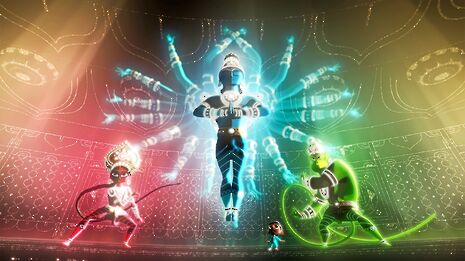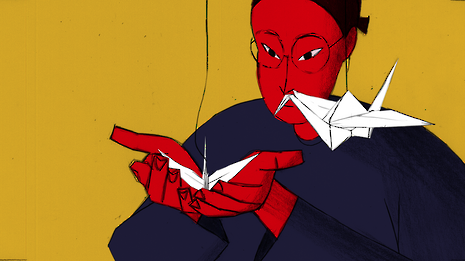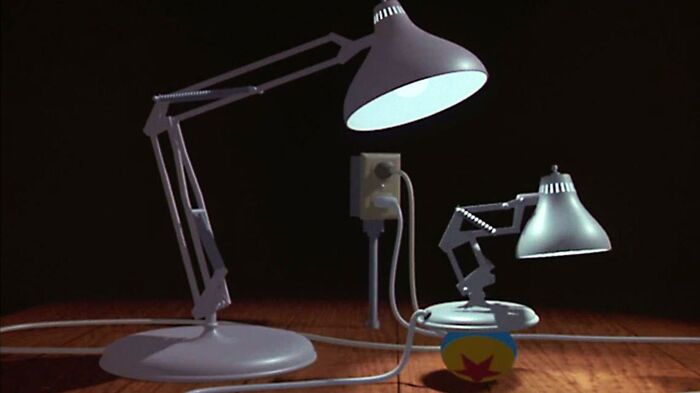Zoetrope: Diasporic voices
Through personal experience, Ian Wang reflects on the power of representation in animation

Disney and Pixar are known for a lot of things, but one thing they are decidedly not known for is diversity. Both companies have racked up considerable criticism over the years for the underrepresentation of marginalised groups in their work – Pixar, for example, did not have a female protagonist until Brave, their 13th film. And when that representation does take place, it is often clumsy or even downright insulting – take the infamous opening song from Aladdin which describes its Arab-inspired setting as “barbaric”. I have been a huge animation fan since childhood, but as a person of colour this tendency towards underrepresentation and misrepresentation has always been something that has bothered me, even when I enjoy the films in question.
When I found out in 2015, then, that a short called Sanjay’s Super Team was going to accompany the release of Pixar’s The Good Dinosaur, my interest was piqued. A film by a person of colour, with a character of colour at its centre, that discussed Hindu culture and the experience of growing up as an ethnic minority in a Western country. In an industry so often focused on appealing to a broad majority, here was a film broadcasting a minority’s voice, loud and clear. And though small-scale shorts tend to have a short shelf life in the mainstream, I think Sanjay’s Super Team, and the work of other diasporic animators, deserves to be remembered and appreciated.
“It can be easy for white Westerners to misunderstand or ignore the experience of immigrants”
Sanjay’s Super Team opens with two supposedly diametrically-opposed images – the TV broadcasting Saturday morning cartoons, a symbol of the modern West, and a small Hindu shrine, designed with the same shape as the TV, but worn-down, wooden, associated with the older generation, the old country. Sanjay, the titular young boy and a fictionalisation of director Sanjay Patel, wants nothing more than to feel like a part of this new Western world, and is frustrated at his father’s insistence on tradition, forced to turn off his beloved superhero show Super Team to pray instead.
Sanjay’s feelings reflect the those of a lot of children in immigrant families, myself included. When you grow up in a country with a dominant culture so different to those of your parents, all you want is to be accepted by that new culture, even if it means rejecting the heritage your family has bestowed upon you. As Patel said in an interview, “I just wanted my name to be Travis, not Sanjay.” That internal cultural conflict can be such a difficult thing to grapple with, but Patel bridges the gap in a dazzlingly creative way; instead of portraying the traditional Hindu worship of his father as a stale, antiquated practice, he imagines the Hindu gods as if they are superheroes, blessed with magic powers, vanquishers of evil – just like the heroes in Super Team.

Patel’s shining, colourful vision of a battle between gods and demons is as exciting and vibrant as any Pixar set piece, but its aesthetics are deeply rooted in Indian art, right down to the richly detailed architecture of the temple it takes place in. At the end of the short, Sanjay and his father are reconciled – they sit in the middle of the scene, between the TV and the shrine, bathed in sunlight as Sanjay shows off his sketchbook, now with drawings of Vishnu, Durga, and Hanuman sitting alongside the Super Team heroes. It is a sign that existing as a person of colour in a white-majority country does not have to be a constant battle between two opposing worldviews; that one can form one’s own sense of identity with elements of each, and that one can decide one’s own narrative without kowtowing to either family pressures or a hegemonic Western culture.
Closer to home, British Chinese filmmaker Jennifer Zheng’s short Tough explores these questions of cultural identity through an animated conversation with her mother about history, heritage and parenthood. Tough is a much more understated, lower-budget film – it was actually a final-year university project – but its uniquely transgenerational perspective and distinct art style earned it a BAFTA nomination earlier this year.
As a dialogue between immigrant mother and British-born daughter, Tough is able to explore the other side of this generational divide, asking what it can be like when one’s own child is rejecting one’s culture and traditions. Zheng’s abstract, minimalist style really captures the sense of anxiety and isolation her mother expresses, concerned about raising her daughter with a sense of her Chinese identity but also wary that she might be bullied by the white children at school, and left with no-one to talk to about that struggle, no community of other immigrant parents going through the same thing.
As the child of Chinese immigrants myself, Zheng’s depiction of this experience really strikes home, and it reminds me of conversations I have had with my own mother, who runs a Chinese language school in Manchester, about the fraught nature of trying to instil a sense of heritage and cultural identity in one’s children. I think it is incredibly valuable for children of immigrants like me to understand that perspective, but also for the wider film going public to understand these issues and try to empathise – it can be easy for white Westerners to misunderstand or ignore the experience of immigrants, both first- and second-generation, but it is so vital that a dialogue can exist between those two groups and that minority groups can be seen, understood and supported by the rest of society.
More than anything, as a person of colour growing up in the West, I am incredibly grateful to filmmakers like Zheng and Patel for putting the immigrant experience up on the screen. There may be relatively few of our stories being told in the mainstream right now, but it is a promising sign that when they do appear, they get taken seriously, and can even get nominated for major awards
 News / Uni Scout and Guide Club affirms trans inclusion 12 December 2025
News / Uni Scout and Guide Club affirms trans inclusion 12 December 2025 News / Cambridge study finds students learn better with notes than AI13 December 2025
News / Cambridge study finds students learn better with notes than AI13 December 2025 News / Cambridge Vet School gets lifeline year to stay accredited28 November 2025
News / Cambridge Vet School gets lifeline year to stay accredited28 November 2025 Science / Did your ex trip on King’s Parade? The science behind the ‘ick’12 December 2025
Science / Did your ex trip on King’s Parade? The science behind the ‘ick’12 December 2025 News / Pembroke to convert listed office building into accom9 December 2025
News / Pembroke to convert listed office building into accom9 December 2025









